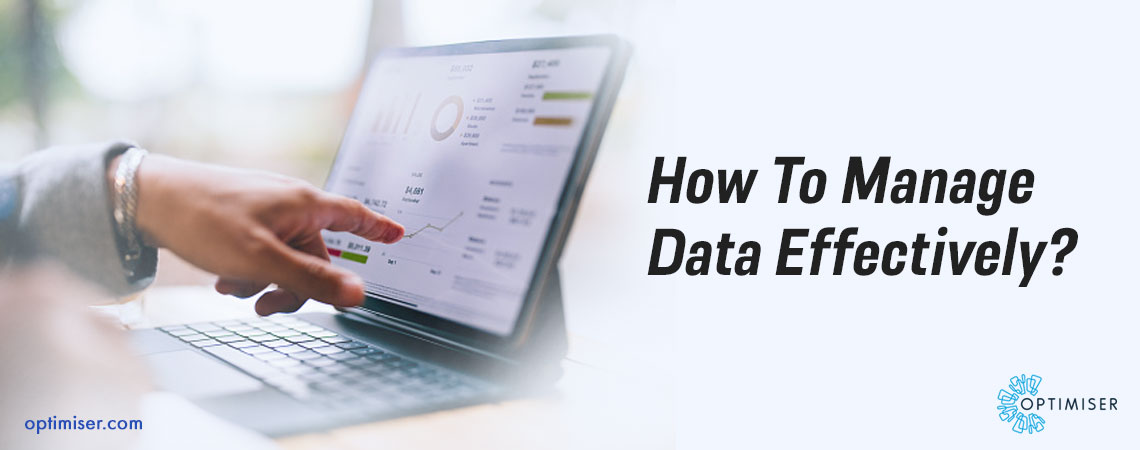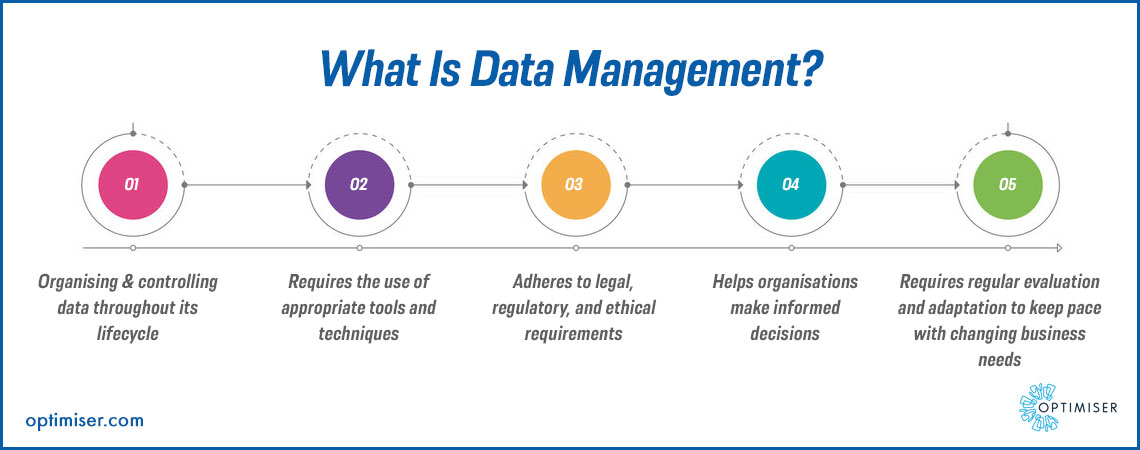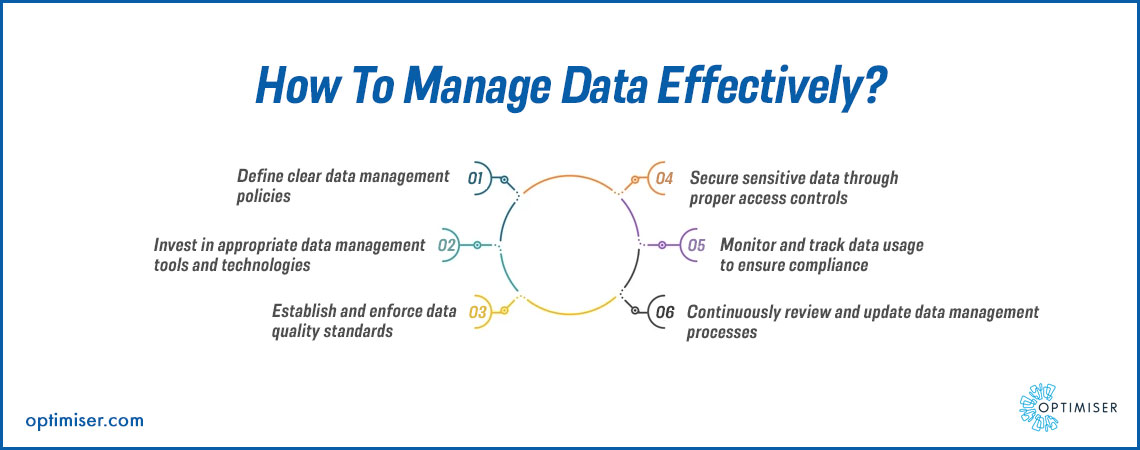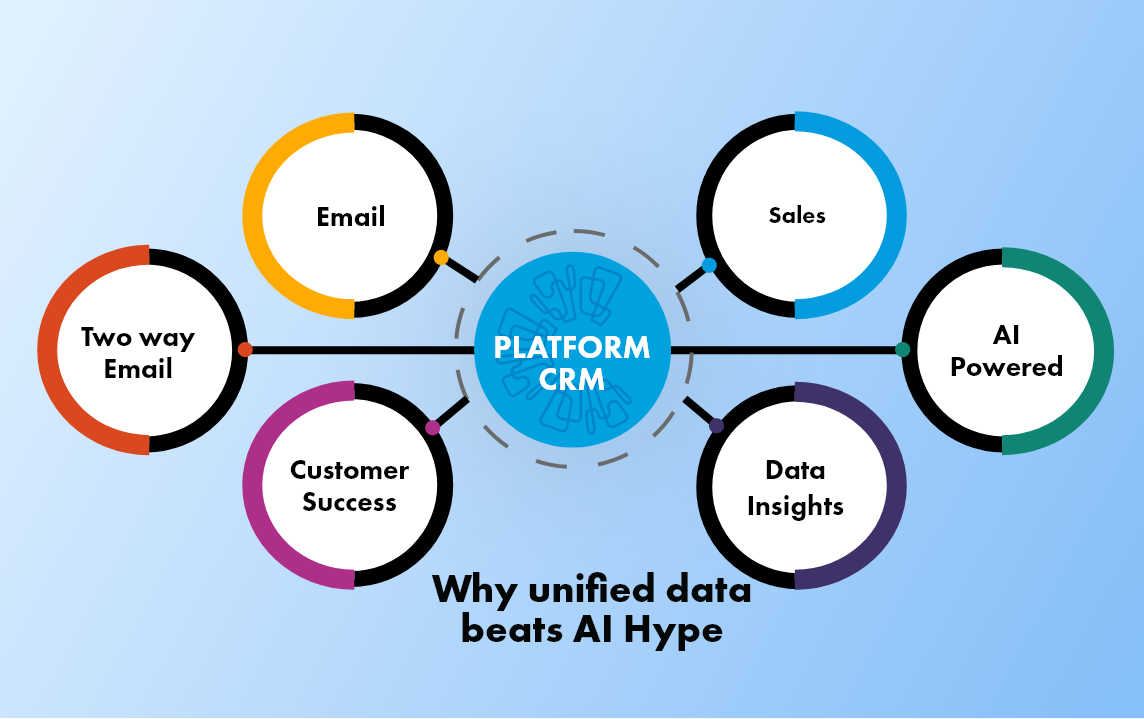
How To Manage Data Effectively?
Data management is the process of collecting, storing, organising, maintaining, and utilising data in a way that ensures accuracy, consistency, security, and accessibility. It involves a set of procedures and techniques that are designed to maintain the quality of data throughout its lifecycle. Data management is an essential aspect of any organisation that deals with large amounts of information.
The first step in data management is to collect data with the help of one of the popular CRM solutions such as Optimiser. This involves identifying the data sources, choosing appropriate collection methods, and ensuring that the data is accurate and relevant. Once the data is collected, it must be stored in a secure and organised manner. This involves selecting appropriate storage solutions, such as databases or data warehouses, and implementing security measures to protect against unauthorised access or data loss.
The next step in data management is to organise the data. This involves structuring the data in a way that is easily searchable and retrievable. This may involve categorising the data, assigning metadata, and creating a standardised data dictionary. By organising the data in this way, it becomes easier to extract meaningful insights and trends from the data.
Data management also involves maintaining the quality of the data. This involves implementing procedures to ensure that the data remains accurate, consistent, and up-to-date. It may involve data cleansing, data validation, and data enrichment techniques. By maintaining the quality of the data, organisations can avoid making decisions based on erroneous or outdated information.
Why Is Data Management Necessary?
Data management is essential for a variety of reasons, including improved decision-making, increased efficiency, enhanced security, and compliance with legal and regulatory requirements.
One of the most significant benefits of data management is improved decision-making. By maintaining accurate and consistent data through leveraging numerous CRM software features, organisations can make more informed decisions based on reliable information.

This allows them to identify trends, patterns, and insights that may not have been apparent otherwise. Additionally, effective data management enables organisations to respond to changes in the business environment more quickly, giving them a competitive advantage.
Another benefit of data management is increased efficiency. By organising and structuring data in a standardised manner, organisations can streamline their operations and reduce the time and effort required to access and utilise the data. This can result in improved productivity and cost savings.
Data management also plays a critical role in data security. With data breaches becoming increasingly common, organisations must implement effective security measures to protect their data. Effective data management involves implementing appropriate security measures to ensure that data is protected against unauthorised access or data loss.
Furthermore, data management is necessary to comply with legal and regulatory requirements. Many industries are subject to strict regulations regarding the collection, storage, and use of data. Effective data management ensures that organisations are compliant with these requirements and avoids potential legal or regulatory penalties.
Data Management Strategy With CRM
- Data Governance: Establish a framework for managing data in the CRM system, including defining roles and responsibilities for data management, setting policies and procedures for data use and storage, and establishing standards for data quality.
- Data Quality: Ensure that the data in the CRM system is accurate, complete, and up-to-date by implementing data cleansing, validation, and enrichment techniques. This includes implementing procedures to regularly review and update customer data to maintain accuracy.
- Data Integration: Ensure that the CRM system is integrated with other data sources in the organisation, such as marketing automation tools, customer service software, and sales applications. This allows for a holistic view of the customer and better insights into their behaviours and needs.
- Data Security: Protect customer data by implementing appropriate security measures, such as access controls, data encryption, and backup and recovery procedures. Additionally, ensure that the CRM system is compliant with relevant data privacy laws, such as GDPR and CCPA.
- Data Analytics: Use data analytics tools to gain insights into customer behaviour, preferences, and needs. This can help to identify opportunities for improving the customer experience and increasing sales and customer retention.

Also Read: How to approach sales holistically using CRM & Analytics?
- Data Lifecycle: Develop a plan for managing data in the CRM system throughout its lifecycle, from its creation and use to its storage and disposal. This includes establishing procedures for archiving and deleting data that is no longer needed, as well as ensuring that data is properly backed up and recoverable in the event of data loss.
By developing a comprehensive data management strategy for the CRM system, organisations can ensure that they are effectively managing customer data, improving customer experience, and driving business growth.
Optimiser CRM For Data Management
Optimiser CRM software is a powerful tool that can be used for effective data management. Organisations can establish a clear data governance policy that outlines data quality, security, and compliance. This can help ensure that the data within the CRM is accurate and up-to-date.
Additionally, organisations can take advantage of Optimiser's data validation and enrichment tools to maintain accurate and complete data. Integrating Optimiser CRM with other data sources, such as marketing automation tools and customer service software, can provide a more comprehensive view of the customer. Utilising the built-in analytics tools can provide insights into customer behaviour and needs, which can help identify growth opportunities and improve the customer experience.
Summary
Data management involves utilising the data to drive insights and decisions. This may involve data analysis, data visualisation, and data reporting. By leveraging the power of data, organisations can make informed decisions and gain a competitive advantage.

30 days free trial. No credit card required
 One powerful platform
One powerful platform
 Simple to use
Simple to use
 Comprehensive
Comprehensive



